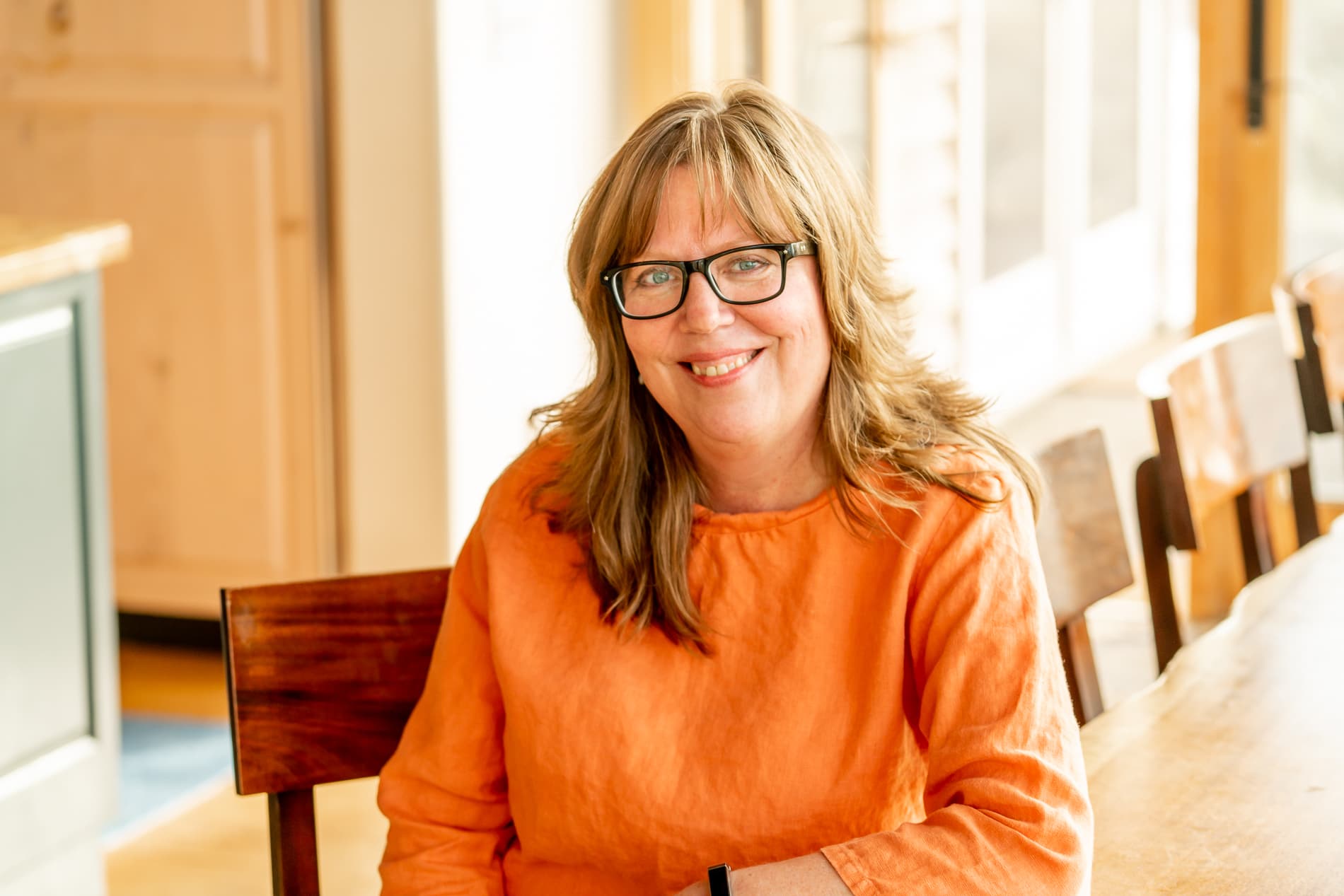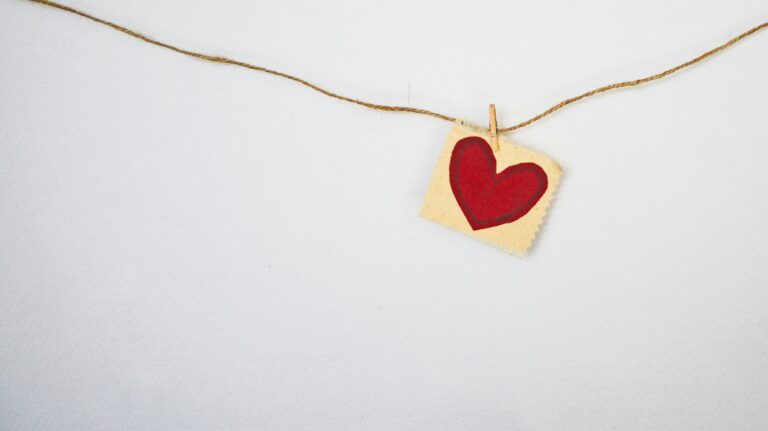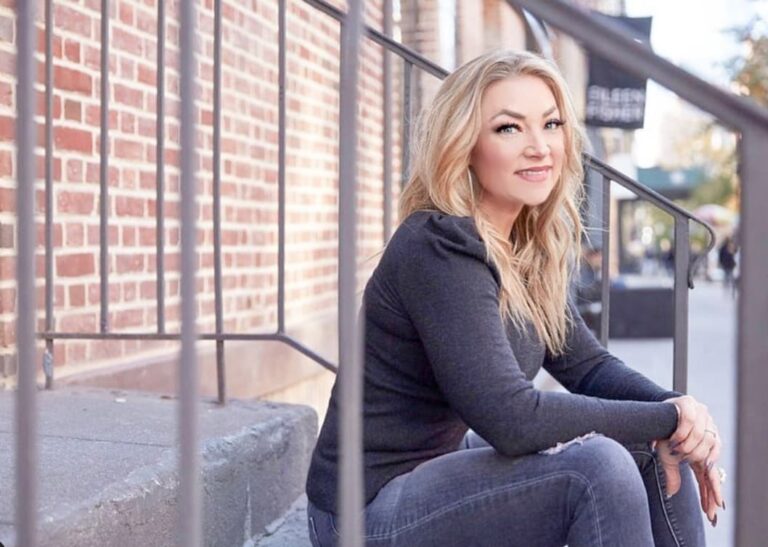From Grief to Growth with Widow Squad Host, Melissa Pierce
I had the privilege of interviewing my good friend and Widow Squad host, Melissa Pierce, who shares her own struggles with understanding and identifying her emotions after experiencing a tragic loss.
Melissa’s inspiring story and her valuable insights on widowhood and resilience are something every widow can relate to. In this episode, Melissa emphasizes the importance of surrounding yourself with a community that understands your experiences, taking small steps towards healing, and recognizing the complexities of grief.
It’s important to surround yourself with people who truly understand what you’re going through and can speak the language of grief and loneliness. Meliss speaks this language beautifully.
Tune in to gain a deeper understanding of the significance of community, healing, and acknowledging the multifaceted nature of grief. Melissa’s poignant narrative underscores the power of understanding and empathy in navigating the path to healing.
Listen to the Full Episode
Links + Resources From This Episode
This post contains affiliate links. Please read our affiliate policy for more information.
- Insight Timer
- The Feelings Wheel
- Melissa’s book Filled With Gold: A Widow’s Story
“Rarely, if ever, are any of us healed in isolation. Healing is an act of communion.”
Episode Transcript
Kim: Hey, everyone. Welcome to another episode of the Widow Squad Podcast. My name is Kim Murray, and I am thrilled to have my amazing co-host, Melissa Pierce, here with me today.
You might have heard bits and pieces of Melissa’s story in the past. But today, we’re gonna dig a little bit deeper and let Melissa share her own unique widowhood experience with us today.
So, Melissa, to start, can you take us back to that time when you first became a widow?
The Sudden Loss: Coping with Unexpected Death
Melissa: Yes. So it was 12 years ago, 2011. I live in Oregon, and I am from the Portland area, so I don’t know if you know the geography of the state. I was living about 4 hours away in Eastern Oregon. It’s very mountainous. It’s in a very small town, and we were there because my husband was a teacher and we were raising our two kids in Eastern Oregon. He taught at the school that they were at. He was their football coach. He was their music teacher. He was their math teacher. At a smaller school, you kind of had to do everything, so music and math generally don’t go together, but he taught both.
Well, now let me backtrack a little bit. We adopted our kids from the state of Oregon’s foster care system four years prior to Dave’s death. So we had, this really beautiful four years period where it was just the four of us. We were just creating and growing and learning about each other and just being a little family in this kind of idyllic setting where the kids are playing football, basketball, baseball, learning how to play instruments, just really active.
So, there was no warning with Dave’s death. He died very suddenly. And he died at home. He just died in his sleep. My oldest son was four hours away at a school function, so it was just me and my youngest son. I discovered Dave didn’t wake up one morning, and I did all the CPR and all the all the things to try and revive him, but he had according to the coroner, he had been dead for several hours, and they honestly don’t know why. You know, it’s on his death certificate. It’s undetermined, with underlying factors. He said the night before he said, well, my chest feels a little tight. I feel like I’m getting a cold or chest cold or something. So maybe that was a heart issue that, you know, we don’t know, honestly.
Kim: You’ll never know. That has to be a difficult concept of no closure. What was the thing? You know, I think sometimes we want to know the thing that starts the process and not know that has to be frustrating, not that it’s gonna change the outcome.
Melissa: It is. And even my oldest son a couple of years ago wrote a school paper that I read. And one of the things in that school paper was that he just doesn’t know. That’s what I tell people. He just died in his sleep. I can’t say it was a heart attack or whatever, and I had visited a psychic a couple years after Dave died. And I got my answer from the psychic, so it’s not scientific or anything, but it was what they both indicated was a cardiovascular event. Which makes sense. You know, your heart stops. It was some kind a clot or something. There’s my answer, but I usually just tell people he died in his sleep. So, it was very sudden without warning, and then, you know, that’s when the chaos began.
Kim: You walk into your room, and you see your husband lying on the bed. And did you know at that moment that something was wrong?
Melissa: Well, he’s an early riser. And it was a Saturday, and he was coaching my youngest or he was helping to coach my youngest son’s basketball game that morning. And the night before, because he said he wasn’t feeling good, he went to bed early. So my youngest son and I pulled out the sofa bed in the living room, and we just watched a movie and fell asleep.
I woke up and I let the dog out, and we had to heat…well, most of our house was heated through a wood stove so I put the log on the fire, and I’m thinking gosh, it’s weird that Dave’s not up yet. And I went in the room, and I saw his leg was out of the covers, and it was a grayish tone, and I just kind of stood there. This does not compute. I was kind of like, what’s happening here? What’s happening? And then I looked at his face, and I’m like, oh my god. So I immediately just jump on him and try to wake him up. I knew CPR. So, I was doing CPR on him, but he was pretty cold at that point. And his I don’t know if this is having a triggering effect on people to hear this, but, yeah, his hands were already in rigor mortise. But I was still doing CPR, and I didn’t have my cell phone with me. So I’m screaming and yelling, “where’s my phone? Where’s my phone?” Where’s my youngest son? He’s yelling, “mom, mom, what’s going on?” What’s happening? I said, “don’t come back here. Don’t come back here.” So, he’s out in the living room by himself.
And I realized I had a landline. I worked from home, and my office desk was set up in the bedroom. So I grabbed the landline. I called 911, and she’s running me through how to do CPR. I’m like, ” yeah, I know how to do this. I’m doing it. Nothing’s happening.” We had a snowstorm, an ice storm before, so it took the paramedics a while, the sheriff, and the paramedics and everybody a while to get to us.
Kim: So even if he hadn’t already been deceased, chances would have not been good.
Melissa: So, when they got there well, I had to tell my youngest what had happened, and I don’t even know what was going on in his little brain. He was 10. You know? So later, come to find out, he thought a wild animal, like a cougar, or a bobcat or something, was in the room because we lived in the woods. And that’s what was going on in his mind.
Kim: That’s what would go through a ten-year-old’s mind.
Melissa: And then I had to let my oldest know. He was four hours away, but I had to call the teacher that he was with because word was getting out in our small town. I didn’t want him to hear it from somebody else, so I had to tell him over the phone, and that was a nightmare.
Kim: Brutal. Yeah, brutal.
Melissa: It was just like, the nightmare began. So, again, we were living in this house that was out in the middle of nowhere. I didn’t like it. Actually, it was on the market. We were in the middle of selling it because it just didn’t work. Dave would have to plow the driveway with this four-wheeler snowplow thing. Pretty much it snowed for four or five months. So, he would have to do that to get his vehicle out and get our vehicles out. I’m like, I can’t do this. I don’t want to be up here by myself with the boys. And two of our really good friends said, “Melissa, we can’t take care of you and the boys.” I mean, the men, his friends, our friends, really felt a responsibility to take care of us. But they were like, “we can’t take care of you up here.” So, I’m like, “yep, we’re out.”
Kim: Noted,
Melissa: I don’t know how this is gonna work.
Kim: Well, life obviously takes a drastic turn after your partner dies. Right? You’re living in this new reality now, and you didn’t have any time to really figure that out. He’s dead. Now I can’t plow a drive, and I can’t heat this house with the wood stove, and I can’t do all these things. You know we ask what some of the unexpected challenges are that widows face. But those were unexpected because you were already living in a house that wasn’t conducive to your family.
Melissa: Right. I mean with Dave and I, we could make it work. You know, we made it work, but I was also feeling quite isolated there. I was working at a job, but I was working remote. I kept my job in Portland. So, you know, I worked every day from home, but it was still really isolating.
So we decided to sell. Let’s put the house on the market. Let’s sell it. And so, we were in the middle of all that nonsense. I’m like, I want out of here now.
Kim: So, if you weren’t planning to sell your house before he died, do you think it would have been harder to go through the process of selling? Because I think maybe, did you know that’s what he wanted to do? After he died, you’re like, I’m just gonna go do it now. Was that an easy decision or a hard decision?
Melissa: It was easy because it came from a feeling place. It was coming from a feeling of I’m scared. I realized I’m alone. He’s not here to run to bounce things off of. Well, that didn’t really hit for several months, but realizing I can’t physically do all these things. And I can’t ask somebody to come stay with me and take care of all these things. So, it was more of a practicality thing. And it just felt safer to be surrounded by the community. The school was a half hour drive away. So how is that going to work? How am I going to take my kids to school, go pick them up, take them to practice? All this kind of practical stuff.
Kim: An you have 2 kids, and you can’t be in two places at the same time. So I think, you know, those of us with more than one child know that it’s a double whammy. Because your children need to be in places and you can’t possibly be in all of them.
Melissa: And I’d have to say it’s not ideal to have to make big decisions like that because I was not in my right mind, I guess. You know, there was just so much happening. And then a lot of health issues started for me. I had a lot of heart palpitations beginning immediately. You know, looking back now, it’s like oh, all this cortisol, you know, everything is pumping through my body. I’m in shock.
Kim: The shock. The fear.
Melissa: Yeah, I just did CPR on my husband’s body. That will always be a memory of mine and the look on his face. But yes. So, immediately, I’m making funeral arrangements and then calling my doctor, “hey, I’ve got this weird thing going on with my heart.” So, I got the EKG. I have all the tests. I wear a heart monitor. So, I’m concerned now about my existence on this earth. What if something happens to me? What happens to my kids? And so I’m doing all the business, you know, planning the funeral, moving the house, signing the lease, taking care of my health, going to all the doctor’s offices, doing the will, getting the estate and all this stuff taken care of.
I took 5 weeks off from work. And then after 5 weeks, I’m like, oh, yeah, I’m ready to work full time. Let’s do this thing. Let’s read legal documents because that’s what I did. Let’s read some really intense business documents and then try to negotiate some of those with clients. That’s brilliant. Makes sense. Makes perfect sense. So that’s what I just I busied my mind kind of like you. We had talked about this when we talked on the last episode, just busying your mind with things other than death. It’s too much.
Kim: It’s too much to have to handle all that on your own. I think your brain does a pretty good job sometimes of protecting you and not allowing you to get to those places that it can’t handle quite yet.
Melissa: Yeah, for sure. So I did that for 6 months and then decided to move our kids and myself back to my support system.
Navigating Life After Loss: Rebuilding and Self-Care
Kim: So that was a big that’s a big deal for most people is how and where do you find that support. So you had family, friends, community, school, all of that in Portland. And so, you knew you needed to get back there to that area.
Melissa: I felt like I could find more resources. I remember going into the little tiny bookstore in the town I was in and just looking for some grief books or something. I wanted to read a book about this and try to figure this out. Literally nothing. You know? Nothing really on grief. And in particular, widowhood or young widowhood, or solo parenting. I just thought I’ll find way more resources and a bigger place. And, again, you know, family and friends, I had people who I knew could watch my kids if I needed to go back to work in the office. So I just set that all up. I decided to do that.
You know, you talked about, for you, you were trying to keep everything as normal as possible. That just didn’t happen with my kids. There was nothing normal about any that we were doing. I asked so much of my kids. You know? But, unfortunately or fortunately, they had dealt with a lot of that stuff before Dave and I even adopted them. So for them moving around was kind of the norm. It wasn’t unusual. I don’t know if that’s not good or bad. It’s just it is what it is. I again, not a lot of normality going up.
Kim: Well, I think it’s interesting when you hear these different stories because I think a lot of times widows assume that what they’re doing is wrong or they should have done better. Things could have been different. But you had a different circumstance. I had a different circumstance. You do what you have to do to get to where you think you need to be. And there’s no right or wrong in any of that. So I think it’s important when we hear these stories to understand that sometimes you have to do things that may be out of the “norm” of what you would think the norm is. Sometimes keeping things, the same is the only way to keep your sanity. It all depends on what is your specific situation and circumstance is. And you have to you have to go accordingly.
Melissa: And you know what’s weird, Kim? Something kicked in. And I don’t know if this happened to you, but something just kind of kicked in my gut or whatever. Before Dave died, I was somebody who would ask people, “what do you think?” I want to do this thing. What do you think? And I would get opinions. I think that’s kind of something where I didn’t really trust myself. And something kicked in during this time. It’s like I don’t know if it’s good, bad, right, or wrong but I’m not asking anybody what I should do.
Kim: That’s amazing. I think a lot of would I struggle with that. What should I do? and asking people for help because they don’t trust themselves. So that’s amazing that you were able to do that. But, again, that’s your brain’s way of protecting you and getting you where you needed to be. Let’s just go, Melissa, go, go, go.
Melissa: It was just funny because that Melissa before was kind of different personality. And then me now, I’m more like, “you know what? I really don’t want your opinion.” And if I need it, I will ask for it. You know, of course, I consulted legal experts and to drop a will I would ask them, “what do you think” But as far as anything else moving and all that stuff, it’s I’m gonna do what I think is best. I don’t know. That was interesting how that kicked in
Kim: It is interesting. But, you know, again, you’re pretty self-aware, which is good. I mean, it’s important to know what you feel in your gut is the right thing to do because it doesn’t always make sense in your brain. But if you can trust that intuition in your gut, it doesn’t usually steer you wrong. So, kudos. Good on you for listening to your gut.
Melissa: I don’t know like if I didn’t have kids, I think I would have had a very different experience.
Kim: Oh, absolutely.
Melissa: But like you, I knew had to keep my kids alive. I had to keep me alive. Still had to go to school. Still had go to baseball games and they still had to play basketball and football and soccer and all the things. So my focus was on them because it was such a long and difficult process to get to the point where we could adopt them. We had to go to training. We had to get FBI checked. We wrote essays. We filled out questionnaires. It was actually something every parent should have to do. So it was very intentional. We wanted a family. We wanted these two little boys, and it was not the easiest process. But we did it, and we got them. And we built this family and now Dave’s gone. I have to do this, and I didn’t have a ton of confidence in myself as far as how am I going to do the dad stuff, too? I don’t know how to talk to my kids about the birds and the bees.
Kim: We don’t know how to do any of this until we actually do it. You just have to do it. And, again, we can be really hard on ourselves and think, well, you should know how to do this. Or we can be realistic and be like, no, you don’t know how to do something until you learn how to do it. So give yourself extra grace.
Melissa: Like you said, we are hard on ourselves because we’ve never done this before. There’s no widowhood 101 course. We’ve never done this before. And so I was really, really hard on myself.
Kim: We talk a lot about the business of widowhood, and that’s just getting through literally the business of closing accounts or redistributing money or whatever the case may be. That’s one aspect. Then you’ve got the emotional and family and relational aspects, a whole different ballgame. So there’s all these things you have to get to get through, monitor and get through. It’s not just raising children. It’s not just going to work. It’s a lot of different things that sometimes work in unison and sometimes don’t.
Melissa: The “business.” That definitely put off the grief. Yeah, I’m not interested in feeling that. Thank you. No. I’m gonna do something else.
Or I was more about, okay the grief. Let’s break it down into a homework project. I was looking for books. I was looking for handbooks, guidebooks. How do you do this grief thing? And I’m not a stranger to grief. My dad had died in 2003. So I had gone through that, but this was my life partner. It’s a different grief. We know this. My future. This was my everything. You know? Everything. So I definitely did not want to grieve. I wasn’t into grieving.
Kim: Well, okay. I wasn’t either. We’ve talked about that before, too. So, the question becomes, when did that catch up with you? At what point did you realize that you’re not the lucky one that gets to bypass all this? I thought I would too. I’m just gonna bypass it. I know people haven’t done it before but I’m gonna do it. I’m going to figure it out. You were the same way. When did it catch up with you?
Melissa: Well, I was concerned. It was about six months in, and I was kind of concerned because I’m not crying. I’m not feeling anything. And that was really scary to me. I felt really zombie-ish. I didn’t feel literally anything, and that scared me.
I thought I should get a grief counselor. Like, show me how to do this. And in one of the first or second sessions, I’m like, “okay, how do we do this? Typically, how long do clients see you, is it 8 months? Are they over this? What’s the average timeline for the average person? Give me a percentage.” Just so you know, I could probably beat that. She just laughs and smiles. She’s like, “that’s not how this works.” It took me a few sessions to really trust her because I’ve never been in a therapeutic situation, a long-term therapeutic situation before.
So that’s really when I started digging in. I was definitely pushing my feelings away because grief will, bubble up. It will find you. It will deal with you. And I didn’t want to deal with it. I was over drinking. I thought it was becoming a problem. So I talked to my brother who’s in recovery and said, “hey, here’s what I’m doing. What do you think is happening? Can you keep an eye on me?” Or do I need help or whatever? And so we had talked it through, and he did keep an eye on me.
Kim: But going back to that self-awareness, that is pretty amazing. A lot of us don’t have that self-awareness of maybe this isn’t the right thing for me to do. I know I am doing it, but maybe I shouldn’t. But just having that and taking stock of your life and reaching out for that help from your brother. That’s amazing. I’m impressed that you had that much self-awareness to be able to make different decisions about what you needed to do.
Melissa: Well, I think some of it comes from I like to appear like I have it all together. And I think the precipice of me asking for help was when I missed a call from the school. I don’t know if I was hungover or whatever. But I think I just wasn’t on point as far as my parenting goes. And I missed a call from the school because my oldest was starting to have some challenges. And I thought, oh, okay I’m not doing well at this parenting thing, and the drinking is getting in the way. This is a problem. And I like to appear like I have it all together. And this is making me appear like I don’t have it altogether. So again, control the chaos, right? And then realizing, yeah, this is what I’m doing. I’m not allowing myself to feel because I didn’t know how to feel my feelings. I love the Feelings Wheel because I don’t know what I’m feeling a lot of the time. And I’ll look at the Feelings Wheel and go, oh, I’m feeling anger or I’m feeling sad, but it’s manifesting like this. It was just something I had to relearn at a at an older age.
Kim: . It’s actually nice because the Feelings Wheel gives you those extra feelings you don’t know about. The feelings you don’t even know exist, but it kind of takes that pressure off you a little bit too because you’re not angry all the time. You might be resentful. You might be, you know, whatever else is on the wheel. So I think it takes some of that pressure off you when you find those other feelings that you’re actually feeling and can put a name to them. Oh, I’m not always mad all the time. Sometimes I’m this. I’m not always sad all the time. Sometimes I’m this. So those are good tools
Melissa: Yeah, I mean, there’s some really great worksheets out there because I love me some homework. It was a huge growth experience for me, which is, I guess, that’s a positive thing. I mean, Dave’s death was horrible and changed my life, changed my kid’s life. So sad. You know? But there is something about this. It’s not a silver lining and it wasn’t like, oh, I’m going to grow from this. I’m gonna have some personal growth. But it just happened. That’s a byproduct. I need to figure out how to rebuild my life
Kim: How did you rebuild your life? What were the steps that you think you took, or did you know that’s what you were doing? What did rebuilding your life look like?
Melissa: It turned into grief counseling which was amazing, because she was able to really kind of shine a mirror on the way I talk to myself which was not super nice. It was very, very mean to myself. And just acknowledging that, talking through that, why am I so mean? I wouldn’t talk to anybody else this way. What’s this loop? What’s happening here? So being aware of that and I don’t know about you, but I the grief really hurt my body, my physical body. I just felt so much. I felt like I was coming out of my skin a lot of the time.
Kim: We’ve talked about this before too when you’re keeping everything in, you’re physically, hunching over and closing yourself off. And so that does not help you when your shoulders are scrunched or your back is scrunched over or your chest is closed.
Melissa: I had to process that grief out of my body or move it around or something. And I don’t know if that was super intuitive. I just thought, ouch my shoulders hurt, I’m gonna get a massage. Or, gosh, I feel so much better when I walk two miles in the neighborhood. You know, just noticing how my body started to feel better and then noticing, again, self-care with my mind and my thoughts.
Kim: So was your therapist a big proponent of self-care? Or was that something you came to intuitively on your own, at some point? Or was she helpful in that?
Melissa: A little bit. The work that we were doing wasn’t necessarily around you know, self-care. I don’t remember her ever asking, “what are you doing to take care of yourself?” It was just more of, ouch, this hurts, so I’m going to do this.
And then also and you know this too, when your life partner dies, the intimacy leaves. The intimacy is gone. And you’re not being touched. So I would get pedicures because somebody would also be touching my feet or just touching me. You know, just having that human touch and with massage. That was something big for me, just feeling some human touch, you know, that’s so important.
Kim: It is important. We don’t realize it until it’s gone. It’s that, “you don’t know what you have until it’s gone” thing that people say all the time because you don’t. But that’s a good point, and anybody listening can do the same thing. Get a massage, get a pedicure. Manicure doesn’t matter what it is. Facial. Doesn’t matter what it is. Just to have that touch. It changes you.
Melissa: It does. But I think even if that does cost money, and there’s some people who are trying to save money, you can go to massage schools and get really cheap massages from the students. I knew somebody who did that.
So all during time as I’m taking care of myself for the first time in my life, I am asking myself: How am I feeling? What do I want? What do I need? You know, I never really asked myself those questions, and now I’m asking. And waiting for, well, what’s coming up? Well, that’s my gut. That is my inner wisdom, and that’s really for the first time in my life when I started tapping into and trusting my gut.
Trusting Your Gut: Finding Inner Wisdom in Grief
Kim: So you think the positive growth and personal growth and positive change and all that stuff that happened to you is that you got more in touch with yourself
Melissa: More in touch with myself, my needs. I was a more effective parent, solo parent. Well, we could ask my kids. Maybe they don’t think so. But, you know, I think so.
Kim: But let’s set expectations here, though. We’re talking about years of discovery. This is not a year after. What else? It’s not even 2 years. It’s happening now. It’s happening now. Exactly. And I was gonna say the same thing. I fall back into familiar patterns of my own that I have to jump back out of and go, no, no, no. I’m not gonna do that again. So it’s a practice. A lifelong practice.
Melissa: Total practice. And it’s a byproduct of this traumatic experience. You know? There were certain as days when I was like, I don’t want to do the world right now. I just don’t want to do this. I want to lay in my bed.
Kim: We have days like that now.
Melissa: Oh, for sure. For sure. You don’t want to do the world.
Kim: So this, again, this is not a one and done listeners. This is an ongoing thing that we have to do and remind ourselves and be gentle with ourselves. It’s ongoing.
Melissa: But it was, yeah, really the first time in my life, I really trusted myself. And I was paying attention to what I was saying to myself.
Kim: Which is key. That’s key. If you had to offer some advice to someone early in her widowhood, maybe something you would do differently back when you started. What would you say?
Melissa: Well, first, take care of yourself and whatever that looks like for you. It’s not intuitive to do that, particularly if you have kids, because you’re doing all the things for them. But really carving out some time for yourself. And we had talked about this before, feeling your feelings. It’s an easy thing to say. Oh, just feel your feelings? But there’s ways that you can do it, and you can ask yourself questions. I wasn’t a big journaler. But I know some folks are and that’s a good way to just write what you’re feeling. Just be curious about what’s happening, what you’re feeling. What’s your body’s telling you? Your body tells you a lot.
Kim: It does. It really does if you listen. We talk about this in the Widow Squad too. So, we’re, you know, always bringing up these ideas and things for widows to do because they’re all things that we’ve done, and we’ve tried to learn. You know? We didn’t know how to do it in the beginning either. So this is the kind of stuff we talk about just to kind of help, you know, move some of the widows in our membership through these really confusing times.
Melissa: And when you talk about communities, the membership and community, I felt so alone. I was the only forty-four-year-old woman with 2 kids who this has ever happened to. Now I know that’s not true, but at the time there weren’t a ton of resources, books, groups, whatever, or the ones that I tapped into were just not a good fit. But that piece, you know, finding your people, finding people who understand who speak your language. This is a different language that we talk now. Grief and loneliness, and widowhood is our second language. Finding those people. Finding your people. Tapping into those people. Maybe they’re not widows, but they are people who understand and speak grief and speak that language and are comfortable with you. Like you said, a previous episode, there were two people that worked with your husband that were just open to hearing you talk about whatever’s going on and that’s key. Trying to find your people, trying to find your community.
Kim: So what would you say to that one widow who’s not convinced or not sure she wants to be in a community?
Melissa: Well, I mean, try it out. There are lots. I mean, not just ours. There are other organizations, but just take that baby step. It’s scary. Sometimes it’s really scary because you have all these thoughts, but, oh, it’s probably gonna be this or this or that or whatever.
Kim: I’ll look foolish. Someone’s gonna think something about me. You know, we’ve talked about vulnerability before too, and it’s not an easy thing to do. But once you get better at it then you realize the benefits of it.
Melissa: Or sometimes there’s some shame around the death or your part in it or whatever. But I would just say take that little baby step with anything that you’re doing. Take a baby step, see where it takes you. Maybe you don’t like where that path is going. Well, then you can veer off and take a different path, and you can make another choice.
Do you know what insight timer is? It’s a meditation app. And so I use it every day, and every day this quote comes up. It’s like the daily quote. And today, right before I did my meditation, the quote and I wrote this down said, “rarely, if ever, are any of us healed in isolation. Healing is an act of communion. You heal in community.” That’s from Bell Hooks. I didn’t come up with that. But I think you really heal when you’re with others who understand what you’re moving through. Maybe a couple of steps ahead of you. Maybe a couple of steps behind you, but you’re healing in this community. And I think you can do things quicker, better when you’re with others, and you’re not isolating yourself. So that would be my advice. Don’t isolate yourself. Try out new things, especially a community.
Kim: I think that’s really good advice. I could not have said it better myself. And for those of you that don’t know, Melissa has a very awesome memoir that she wrote about her experience, and it’s called Filled with Gold. And she talks about her grief counselor in this book who I thought was just kind of really amazing lady reading the story, and it’s something that I wish I had had when I was first widowed because I didn’t have that kind of a counselor. Anyway, you can hear more about Melissa’s story through her book, and we can put a link to that in the show notes.
And I just want to say thanks for being so open with us today and honest about your journey. We’ve talked so many times about our specific paths. And I wish I knew you when I was also a forty-four year old widow with an eight and ten-year-old boys. If we’d have known each other back then when we were first widow, can you imagine how different our paths would have been?
Melissa: Oh gosh, I know. I know! I appreciate you talking about the book. It’s hard to promote yourself.
Kim: It is hard. It’s a great book. I loved reading it, and I know Melissa’s story, but I loved reading more about it in an in-depth way. So for those of you that want to get a little more information about it, I highly suggest that you pick up a copy.
So, Melissa, this has been so much fun.
Melissa: I know. I know.
Kim: We have to do this again and learn some more new things. We’re always talking about how we learn something new about each other when we just sit down and have conversations.
So I’m urging all of you out there listening, if you’re feeling isolated, like Melissa said, don’t stay in that isolation, reach out somewhere to someone for support because there’s somebody out there for you to talk to.
Melissa: There is.
Kim: Well, that’s it for this episode, and we will see you next time on the next episode of the Widow Squad podcast.







